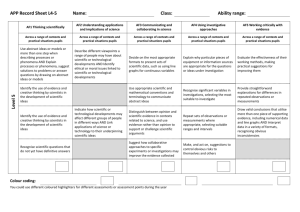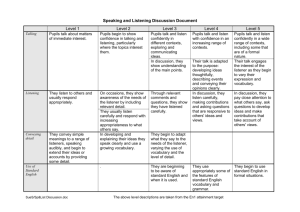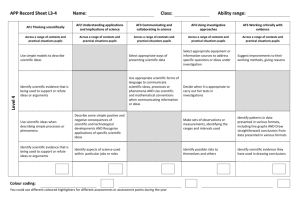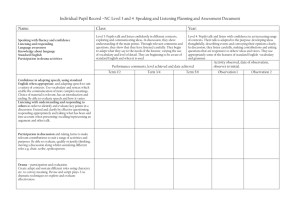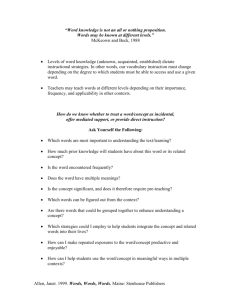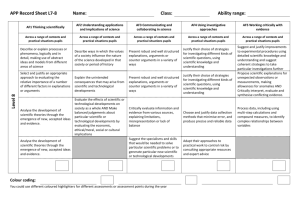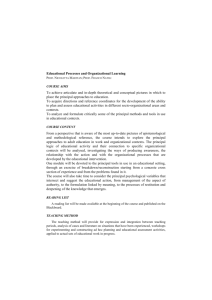Level 5
advertisement
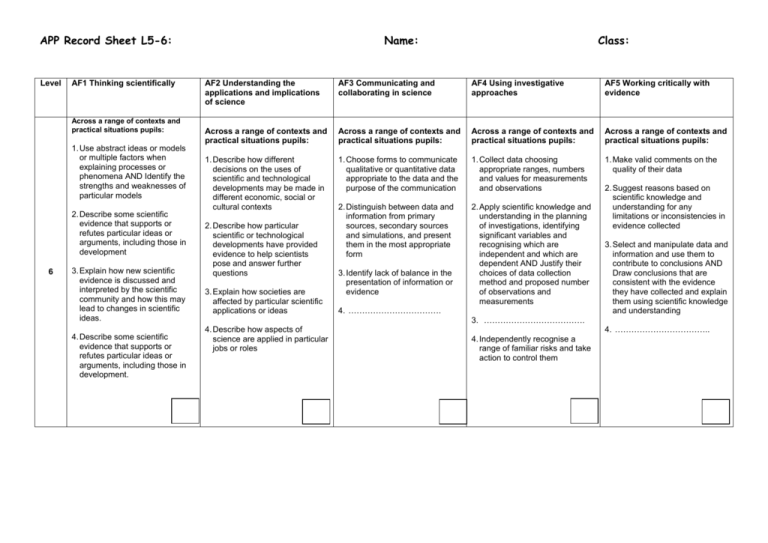
APP Record Sheet L5-6: Level AF1 Thinking scientifically Across a range of contexts and practical situations pupils: 1. Use abstract ideas or models or multiple factors when explaining processes or phenomena AND Identify the strengths and weaknesses of particular models 2. Describe some scientific evidence that supports or refutes particular ideas or arguments, including those in development 6 3. Explain how new scientific evidence is discussed and interpreted by the scientific community and how this may lead to changes in scientific ideas. 4. Describe some scientific evidence that supports or refutes particular ideas or arguments, including those in development. Name: Class: AF2 Understanding the applications and implications of science AF3 Communicating and collaborating in science AF4 Using investigative approaches AF5 Working critically with evidence Across a range of contexts and practical situations pupils: Across a range of contexts and practical situations pupils: Across a range of contexts and practical situations pupils: Across a range of contexts and practical situations pupils: 1. Describe how different decisions on the uses of scientific and technological developments may be made in different economic, social or cultural contexts 1. Choose forms to communicate qualitative or quantitative data appropriate to the data and the purpose of the communication 1. Collect data choosing appropriate ranges, numbers and values for measurements and observations 1. Make valid comments on the quality of their data 2. Distinguish between data and information from primary sources, secondary sources and simulations, and present them in the most appropriate form 2. Apply scientific knowledge and understanding in the planning of investigations, identifying significant variables and recognising which are independent and which are dependent AND Justify their choices of data collection method and proposed number of observations and measurements 2. Describe how particular scientific or technological developments have provided evidence to help scientists pose and answer further questions 3. Explain how societies are affected by particular scientific applications or ideas 3. Identify lack of balance in the presentation of information or evidence 4. ……………………………. 2. Suggest reasons based on scientific knowledge and understanding for any limitations or inconsistencies in evidence collected 3. Select and manipulate data and information and use them to contribute to conclusions AND Draw conclusions that are consistent with the evidence they have collected and explain them using scientific knowledge and understanding 3. ………………………………. 4. Describe how aspects of science are applied in particular jobs or roles 4. …………………………….. 4. Independently recognise a range of familiar risks and take action to control them Level AF1 Thinking scientifically AF2 Understanding the applications and implications of science AF3 Communicating and collaborating in science AF4 Using investigative approaches AF5 Working critically with evidence Across a range of contexts and practical situations pupils: Across a range of contexts and practical situations pupils: Across a range of contexts and practical situations pupils: Across a range of contexts and practical situations pupils: Across a range of contexts and practical situations pupils: 1. Use abstract ideas or models or more than one step when describing processes or phenomena AND Explain processes or phenomena, suggest solutions to problems or answer questions by drawing on abstract ideas or models 1. 1. Decide on the most appropriate formats to present sets of scientific data, such as using line graphs for continuous variables 1. Explain why particular pieces of equipment or information sources are appropriate for the questions or ideas under investigation 2. ……………………………. 2. Use appropriate scientific and mathematical conventions and terminology to communicate abstract ideas 2. Recognise significant variables in investigations, selecting the most suitable to investigate 1. Evaluate the effectiveness of their working methods, making practical suggestions for improving them 2. Provide straightforward explanations for differences in repeated observations or measurements Identify the use of evidence and creative thinking by scientists in the development of scientific ideas 3. Indicate how scientific or technological developments may affect different groups of people in different ways AND Link applications of science or technology to their underpinning scientific ideas 2. 5 3. 4. Identify the use of evidence and creative thinking by scientists in the development of scientific ideas 4. Describe different viewpoints a range of people may have about scientific or technological developments AND Identify ethical or moral issues linked to scientific or technological developments ……………………………. Recognise scientific questions that do not yet have definitive answers 3. Distinguish between opinion and scientific evidence in contexts related to science, and use evidence rather than opinion to support or challenge scientific arguments 3. Repeat sets of observations or measurements where appropriate, selecting suitable ranges and intervals 4. Make, and act on, suggestions to control obvious risks to themselves and others 3. Draw valid conclusions that utilise more than one piece of supporting evidence, including numerical data and line graphs AND Interpret data in a variety of formats, recognising obvious inconsistencies 4. ……………………………….. 4. Suggest how collaborative approaches to specific experiments or investigations may improve the evidence collected BL IE Overall assessment (tick one box only) Low 5 Secure 5 High 5 Low 6 Secure 6 High 6
